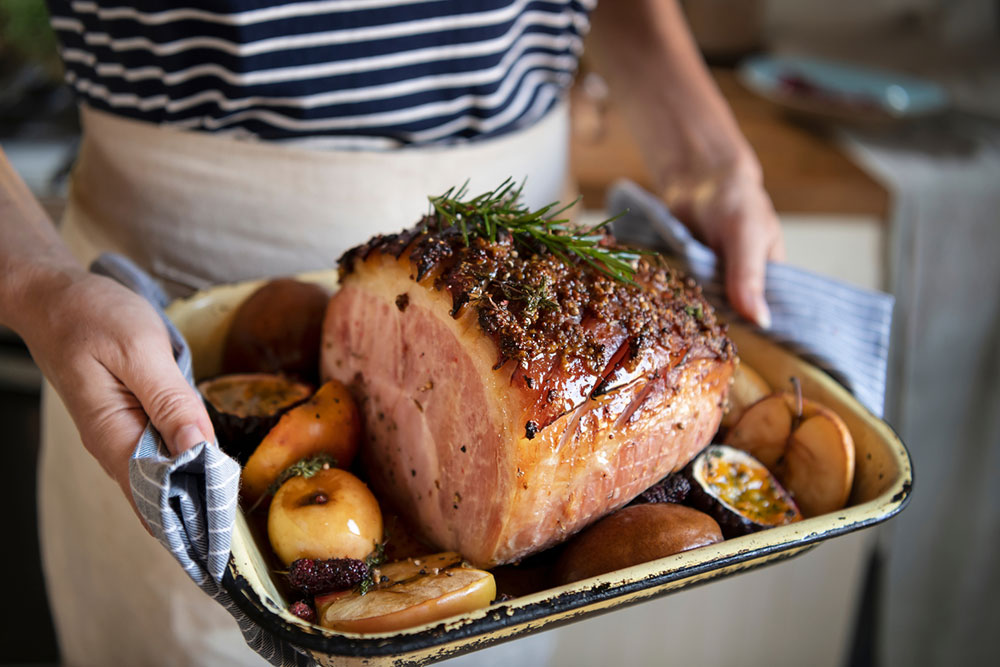6 ways to keep food fresh longer

According to the U.S. Department of Agriculture (USDA), 30 to 40% of the food supply is tossed away as food waste. Such wastage can easily be avoided by preventing food spoilage. To do this, food needs to be either stored better or consumed in a judicious manner. So, to help keep food fresh for longer and avoid throwing it away, here are a few ways to handle food and leftovers:
1. Ensure optimal storage environment
When stored incorrectly, say at the wrong temperature, food can get spoiled quickly. Even when placing food in the fridge, there are a few steps to take. For instance, according to the USDA, the right temperature inside the fridge should be at or below 40 degrees Fahrenheit, while the freezer temperature should be 0 degrees Fahrenheit. Anything above that can encourage food spoilage. Further, the temperature indicated on the fridge might not be accurate, so experts suggest using an appliance thermometer to get the right reading.
2. Seal food in airtight containers
Using resealable containers and bags here is an easy and environmentally friendly way to store food when compared to single-use containers. When meal-prepping or storing leftovers, one should avoid leaving them exposed to air and moisture, even inside the fridge, as this encourages bacterial growth in the food. Using airtight resealable packaging like silicon bags or glass containers is a great way to keep food it fresh for longer. Another tip is to use transparent containers so one does not have to keep opening the containers to check what’s inside. This lets air into the food.
3. Freeze fresh produce
This is a great way to avoid throwing out veggies and fruits that get spoiled in the fridge. Frozen produce has just as much nutritional value as fresh produce. Plus, it lasts very long. So, one can toss fresh fruits and vegetables into the freezer for weeks. To avoid opening the storage container every time one needs frozen food, one can divide big batches of produce into smaller batches stored in individual containers so that only one at a time is opened and emptied. This way, the rest of the food remains fresh and can be used as and when required. Further, one should not also wash all the vegetables and fruits they plan to freeze. Moisture can speed up the process of food degradation. One can wash the produce when they want to have it or cook with it.
4. Keep bread covered
Bread can become moldy quickly when stored incorrectly. This usually happens when bread is exposed to damp air and warm temperatures. To address this problem, one can invest in bread boxes, which are designed to hold entire loaves of bread and are easily available in the market. One can also get airtight bags or plastic wrap to store bread. However, reusable options are preferable here to avoid wastage. Also, one can freeze bread if they intend to have it over a long period. Breads and rolls can last up to three months in the freezer, while in the fridge, they only last for 14 days.
5. Get the quantities right
When buying, one should ensure that they do not go overboard with their grocery shopping. The list should be strictly based on the number of people the groceries will feed. Keeping tabs on weekly or monthly household consumption can help one narrow down the list to things that are bound to be eaten and those that stay in the fridge or pantry for ages. While certain dry packaged foods last for a long time, when buying easily perishable foods, one should avoid getting more than one can have. Here, meal planning can help in making the grocery list.
6. Check expiration dates
When buying food products, one should always check the expiration date or the best before the date. While one should definitely avoid expired products, it is also important to avoid buying foods that are going to expire in a couple of days. One should first assess when they plan to use a product, and if it is uncertain, one should go with a product that will last long. Alternatively, one should always buy products they tend to use often or immediately. Also, the best-before dates may not be precise, so one can follow their instincts and inspect food to see if it seems safe to eat past the date on the label. One should definitely throw the food out if they detect any mold, an odor, or a change in the texture or color of the food, as these are telltale signs of food spoilage. But if past the best-before date, the food looks and tastes as it should, then one should have it as soon as possible. Further, according to the USDA, foods like poultry and beef can stay up to a year in the freezer. So, one may need to check how long foods last based on how they are stored.
One can check reliable online resources to learn about food wastage and check how long food items stay fresh in the fridge. A basic understanding of such information is necessary to manage groceries better and avoid wastage.